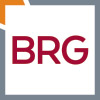
23 Aug Are We Ready to Realize the Potential of Digital Health? Part 1
Advancing Digital Health Literacy for All
As innovation speeds ahead, we must ensure it doesn’t leave users behind
The pace of technological change is faster than it has been at any time in history. In healthcare, the promise of transformational technologies like digital therapeutics, wearable sensors, telemedicine and AI is exciting – and necessary. While not a cure-all, digital health solutions may be our best hope to improve health outcomes in the face of an aging population, constantly escalating costs and a looming healthcare workforce shortage. As we invest in digital health innovation, we must also invest in preparing people to use and benefit from them. This means building both the digital literacy skills and the mindset needed to trust these new tools and thrive in a digital world.
Digital health literacy is a person’s ability to find, understand, and use electronic health information to make informed decisions about their health. A review of published research shows that higher levels of digital health literacy correlate to a better understanding of health conditions and improved self-efficacy in managing chronic health.
However, in the U.S. alone, some studies show up to a third of working-age adults lack basic digital literacy skills. Further, many of those same populations – the elderly, certain ethnic groups, the economically disadvantaged, rural dwellers and those with less education – also suffer from lack of access to digital health information.
Digital health literacy is also hindered by access issues – including Internet connectivity, device affordability and product design for specific physical, visual, auditory, cognitive or language needs.
As healthcare rapidly evolves, digital health literacy is becoming a social determinant of health. With hindsight, we now understand the impact of the digital divide. We have an opportunity act now to prevent a similar, and potentially even more detrimental, gap from developing in healthcare.
BRG believes in the power of communication and education to effect positive change and help people live longer, healthier, better lives. We’re inspired by conversations we’ve had with leaders from across the healthcare and technology spectrum at the recent meeting of the Consumer Technology Association and Connectivity Standards Alliance, and by the work of startup companies like Carevocacy, which is improving digital literacy amongst Medicare patients and other seniors. If you are a nonprofit organization, technology company, healthcare provider, medical society, payer or other organization that aims to promote digital health literacy, we’d love to hear from you. Contact us here.
Stay tuned for Part II in this series: Building Trust






